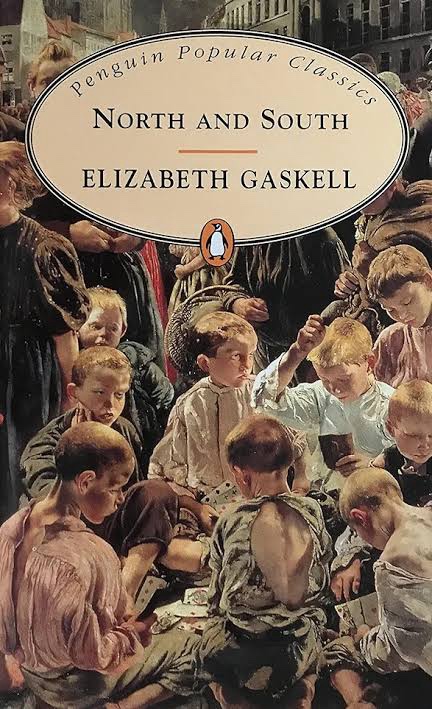North and south, rich and poor, old and new, fast and slow, man and woman — this is a novel built on binaries that seem written in stone, but really North And South is a novel of flux, or, at least, the possibility of it.
At the story’s start we meet Margaret Hale, 18 and living with her cousin Edith and aunt in London, while Edith feverishly awaits her marriage. Margaret, we learn, has lived with these relatives for some time, while her father and mother live some way away in fictional Helstone, where Mr Hale serves as parson. Edith’s marriage sees Margaret moved back to Helstone. Helstone is a timeless, fairytale sort of place, where the trees are ancient and ferns are harvested each year and there are peasants hard at work in the fields. But Margaret is only to spend a brief time at Helstone, for soon her father tells her that he is breaking with the church after a crisis of faith, marking him as a dissenter. In a paroxysm of doubt he ups the family to Milton in the shire of Darkshire in northern England.
As heavily shadowed by the title and the name of the shire, Milton is a topsy-turvy land, where the cotton industry dominates, workers crowd the streets and — quelle horreur — people make their own fortune instead of being born into it. It’s here that Margaret’s distaste for “shoppy” people is tested, and she encounters the dashing Mr John Thornton, self-made master of one of the cotton mills. They spend much of the novel at passionate loggerheads over the duties of care owed to those lower in station than themselves, in conversations so intense that terms of trade and industrial relations might make you blush.
North And South has an incredible amount of plot, but wears it lightly. It covers but a few short years of our heroine’s life but there is little that doesn’t happen to her in that time. Civil unrest, strikes, romantic and political intrigue, illness and death of all variety — it’s no wonder by novel’s end Margaret is feeling aged beyond her years. It’s also often a very funny novel — Mr Thornton’s sister’s penchant for dramatic gesture (“I’m so tired,” she says at one point. With what? “I don’t know — the weather”), the Hale’s maid Dixon’s deadpan pessimism (“I’m sure it’ll be your death before too long”), and Mrs Thornton’s bluntness (I’m immediately incorporating “saucy jade” as term of endearment/insult of choice) are a reminder that there’s isn’t much funnier than terrible things said with Victorian manners.
North And South flirts with revolutionary politics but then becomes something else; Steinbeck it is not. It seems ambivalent about whether freedom is seized or earned, or simply out of reach for the lesser classes, destined to be trapped under the goodwill or otherwise of benevolent despots for eternity. Gaskell is more concerned with the possibility of individual growth and the improvement of relations between people than she is with liberating the masses. She does however offer astute observations of the limits of social mobility, and how the privilege of inherited wealth lingers even as new sources of power become available (the novel’s conclusion is simultaneously liberating but also reinforcing of the most traditional of hierarchies). Hers is an ethics infused with Christian grace, humility and sacrifice, weaponised to keep people in their place. While the plight of the mill workers is highlighted, there is absolutely no discussion of where all that raw cotton is coming from, and we must imagine what the novel might make of slavery.
This is a portrait of time and place, even if fictionalised. Gaskell’s prose is rich; early in the novel she offers the sublimely sensual scene of the Hale family and a guest pick pears in the late afternoon light. They find Mr Hale sitting in the garden:
He had not year finished the pear, which he had delicately peeled in one long strip of silver-paper thinness, and which he was enjoying in a deliberate manner. It was like the story of the eastern king, who dipped his head in a basin of water, at the magician’s command, and ere he instantly took it out went through the experience of a lifetime.
Later in the novel Gaskell returns to the scene, in a chapter that must be one of the great meditations on the passage of time, as Margaret ponders:
the natural mutations brought by days and months and years, which carry us on imperceptibly from childhood to youth, and thence through manhood to age, whence we drop like fruit, fully ripe, into the quiet mother earth.
Whether we like it or, Margaret learns, no matter how dearly we hold on to the certainties that define our lives, change is inevitable.
Gay rating: 1/5 for the rather camp bachelor Mr Bell, and Mrs Thornton, who would annihilate a reading challenge.
